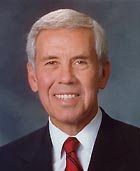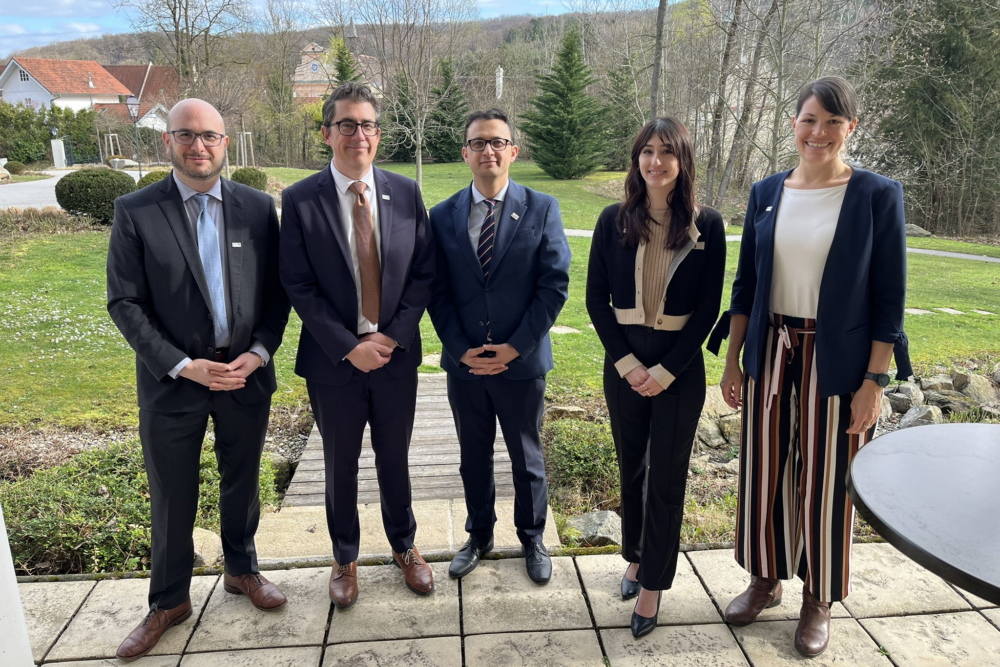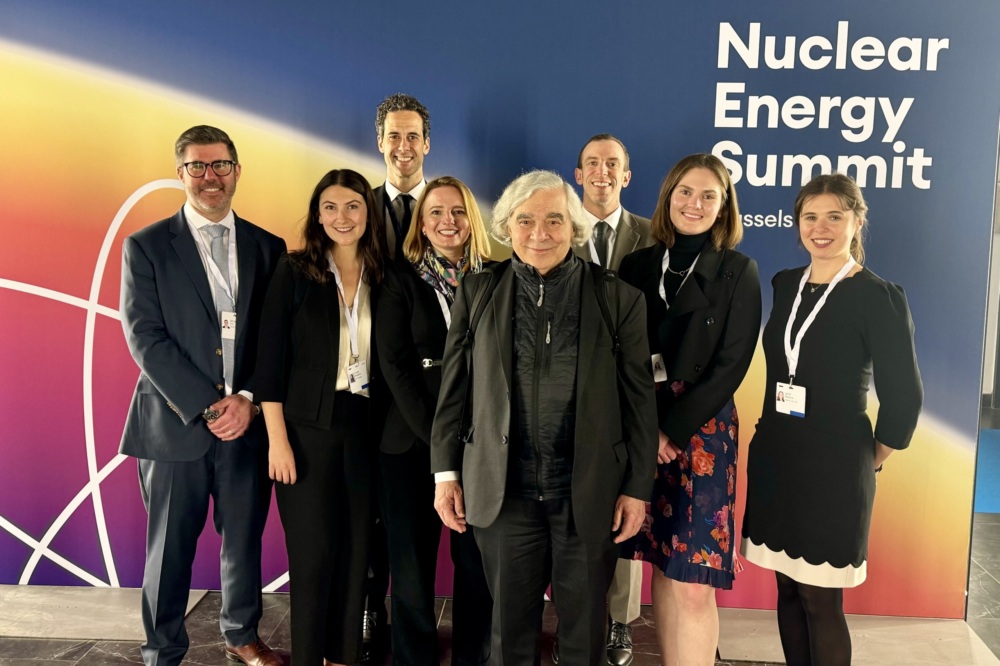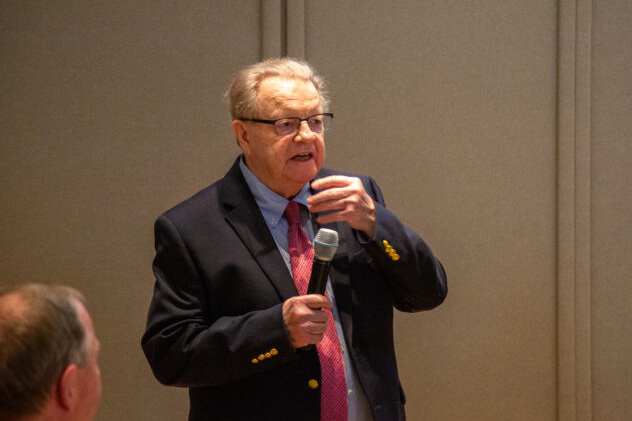
Richard G. Lugar
Former U.S. Senator
Nunn, Lugar: Programs to Secure Vulnerable Nuclear Weapons and Materials Must be Accelerated and Reshaped to Meet Terrorist Threat
New Harvard Report Grades Programs, Recommends Actions to More Effectively Block Terrorist Pathway to a Nuclear Bomb
Former Senator Sam Nunn and Senator Richard G. Lugar, the original sponsors of the Cooperative Threat Reduction program, today said the approach and pace of these programs is inadequate to the threat. Nunn and Lugar made the comments at a news conference to release a new report from Harvard University on steps to keep nuclear weapons out of the hands of terrorists and hostile states.
“We are calling for an acceleration and reprioritization of U.S. threat reduction programs to ensure that the most urgent threats are addressed first,” said Senator Richard Lugar, Chairman of the Senate Foreign Relations Committee and Board member of the Nuclear Threat Initiative (NTI). “The scope of the effort does not match the scale of the threat at a time when these programs are more essential than ever.”
“A great deal of critically important threat reduction work has been done, but current efforts remain far too slow to win the race to keep these deadly materials out of terrorist hands,” said former Senator Sam Nunn, Co-Chairman of NTI. “Terrorist groups are racing to get weapons of mass destruction – we should be racing to stop them. The threat cannot be made to fit the programs; the programs must be remade to fit the threat.”
The new report, “Controlling Nuclear Warheads and Materials: A Report Card and Action Plan,” says the effort requires immediate attention from the highest levels of U.S., Russian and other governments and calls on the response to be “every bit as determined and resourceful as the terrorists are.” According to the report, U.S. threat reduction programs have secured and destroyed enough nuclear material for thousands of nuclear bombs, demonstrably improving U.S. and global security, but most of what needs to be done to keep nuclear weapons out of terrorists hands has not yet been done and the pace at which the remaining work is moving forward is “unacceptably slow.”
“While President Bush has said that ‘we will do everything in our power’ to make sure that terrorists never use nuclear, biological and chemical weapons, there remains an enormous gap between the seriousness and urgency of the threat and the scope and pace of the U.S., Russian and international response,” said Matthew Bunn, one of the report’s authors, from the Project on Managing the Atom at Harvard University.
The report, by experts from the Project on Managing the Atom and commissioned by NTI, recommends steps to accelerate and strengthen programs to upgrade security for Russian nuclear warheads and materials, and calls for expanding these efforts to address insecure nuclear stockpiles around the globe. To overcome the obstacles to progress, the report calls for sustained, day-to-day engagement on these issues from the President. “The lesson from the history of U.S. arms control and non-proliferation efforts is very clear,” the report concludes. “When the President is personally and actively engaged in making the hard choices, and overcoming obstacles that arise, these efforts succeed. When that is not the case, they fail.”
The report and its online companion at www.nti.org/cnwm provide the most comprehensive assessment ever published of nuclear threat reduction programs to date, both in terms of work completed and dollars spent. Belfer Center for Science and International Affairs The report includes a sweeping action plan for accelerating the effort, with a systematic analysis of the steps on the terrorist pathway to the bomb and what can be done to block them. The website features in-depth program-by-program assessments and recommendations and an interactive budget database including the budgets for each nuclear threat reduction program from 1992 to the present.
“As the world debates how to disarm Iraq, we must focus our efforts on shutting down the hundreds of pathways around the world that terrorists could use to acquire nuclear weapons or the material and knowhow to make them,” said Ted Turner, Co-Chairman of NTI.
“The steps recommended in this report would benefit U.S., Russian and global security, and can only succeed if carried out in full partnership with Russia and all the nations that have nuclear weapons and materials,” said Vladimir Lukin, Deputy Chairman of the Russian Duma and NTI Board member.
Among the report’s key findings:
Among the report’s key recommendations:
###
Sign up for our newsletter to get the latest on nuclear and biological threats.
During the 17th meeting of the Global Dialogue, participants developed plans to ensure successful outcomes at ICONS and leverage that momentum to reinvigorate nuclear security internationally.
NTI advanced key principles from a recent report that outlines pathways for the responsible, sustainable, and effective development of new nuclear projects and industries in embarking countries.
Organization founded by NTI works to strengthen the physical protection and security of nuclear and radioactive materials and facilities worldwide.


